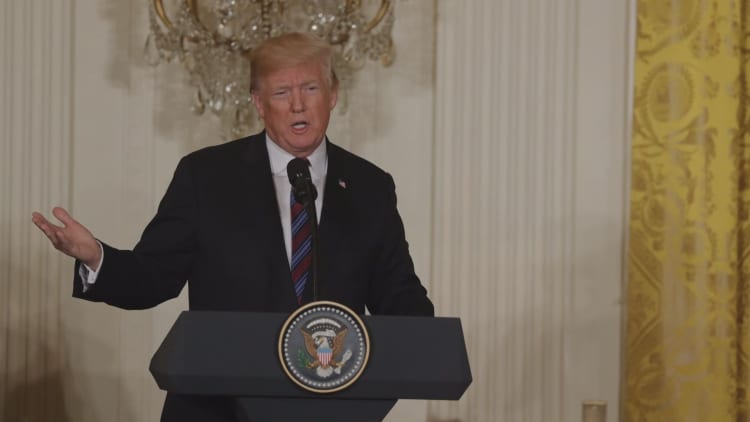Republicans are drafting legislation to make permanent the reductions to individual tax rates and a provision that allows businesses to fully deduct expenses immediately, according to two people briefed on the discussions.
The goal would be for the House of Representatives to vote on the bill April 17, the deadline for households to file their tax returns, the sources said, though one cautioned that date could slip. The legislation is highly unlikely to make it through the Senate, where it would require Democratic support to pass, and its fate in the House is uncertain as well, if fiscal conservatives balk at the price tag.
Still, the effort could help Republicans refocus their message amid the threat of a trade war with China and wild swings in the stock market. President Donald Trump is slated to visit West Virginia on Thursday to tout the merits of tax reform and has pushed Congress to consider a "phase two" of tax cuts.

Democrats have slammed the new law — which passed late last year with only GOP votes — because the tax cut for corporations is permanent, while the lower individual rates expire after 2025. Republicans argue they were hamstrung by the legislation's $1.5 trillion ceiling, the result of the arcane and partisan process used to fast-track the bill.
House Ways and Means Chairman Kevin Brady has called making the tax cuts for individuals permanent one of his priorities, along with finding ways to encourage business innovation through the tax code.
Under the new law, companies are allowed to fully deduct their capital expenses immediately, rather than over several years.
However, that provision begins phasing out after five years and expires completely in 2026.
A spokesperson for the committee did not immediately reply to a request for comment.
"We should never just sit on our laurels and not look for ways to improve and make our families and our tax code more competitive," Brady told CNBC last month.

